
WHEN BRITISH ANTARCTIC survey scientist Peter Fretwell spoke in July 2023 at the SCAR biology symposium in Christchurch, New Zealand, his words drew gasps of despair that later rippled around the world. SCAR – the Scientific Committee on Antarctic Research – represents scientists conducting research at Earth’s great frozen southern continent. The Christchurch gathering was their first face-to-face conference since the COVID pandemic began.
Peter, a cartographer renowned for monitoring wildlife at the planet’s remote poles by using high-resolution satellite imagery, was there to present some alarming news – evidence of catastrophic breeding failure in emperor penguins on the Antarctic Peninsula due to record low levels of sea ice.
Sea ice is frozen seawater, and it forms, metres deep, around Antarctica each winter. It floats on top of the ocean, clinging to the continent’s edge while stretching across the water for many kilometres. It retreats in summer, although never completely, and its seasonal fluctuations influence the global climate. It also profoundly and directly affects the Antarctic environment, where it influences ocean circulation, weather and the local climate. The rhythmic coming and going of sea ice is critical to all Antarctic life, from crabeater, Weddell and leopard seals, to humpback whales, Adélie and chinstrap penguins, and Antarctic skuas. But it’s particularly important to emperor penguins because it’s the place where most of them breed.
هذه القصة مأخوذة من طبعة January-February 2024 من Australian Geographic Magazine.
ابدأ النسخة التجريبية المجانية من Magzter GOLD لمدة 7 أيام للوصول إلى آلاف القصص المتميزة المنسقة وأكثر من 9,000 مجلة وصحيفة.
بالفعل مشترك ? تسجيل الدخول
هذه القصة مأخوذة من طبعة January-February 2024 من Australian Geographic Magazine.
ابدأ النسخة التجريبية المجانية من Magzter GOLD لمدة 7 أيام للوصول إلى آلاف القصص المتميزة المنسقة وأكثر من 9,000 مجلة وصحيفة.
بالفعل مشترك? تسجيل الدخول
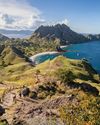
SULAWESI SENSATIONS
There are worlds within worlds and marvels untold waiting to be experienced on Indonesia's remote islands.
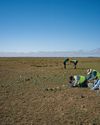
SEARCHING FOR AUSSIE DINOSAURS
Our understanding of where to find ancient life in Australia has been turned on its head by a new appreciation of the country's geology. Now the world is looking to our vast outback as the latest hotspot to locate fossils.
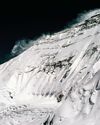
THE HARDEST NIGHT
The first Australian ascent of Mt Everest in 1984 is one of the great feats of mountaineering. Climbed by a small team semi-alpine style, with no bottled oxygen, via the Great (Norton) Couloir, it remains unrepeated 40 years later.
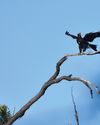
WEDGE-TAILED WONDER
The chance discovery of an eagle nest leads to an extended vigil observing normally hidden behaviours of one of nature's supreme winged marvels.
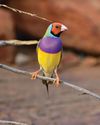
BURDENED BY BEAUTY
Northern Australia's Gouldian finch survives in huge numbers in cages around the world, but its wild population continues to struggle.
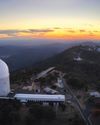
A TELESCOPE FOR A GOLDEN AGE
After a stellar 50 years as one of the country's major scientific assets, the AAT continues to play a major role in keeping Australian astronomy on the world stage.
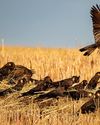
COCKY WHISPERING AT COOMALLO CREEK
This patch of remnant bush on the edge of the West Australian wheatbelt is a place loved by one of Australia's rarest bird species and the man who has studied the site for more than 50 years.

A PIONEERING PAIR
Louisa Atkinson and her mother, Charlotte, were among Australia's earliest authors, and pioneers in women's rights.
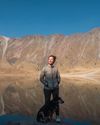
THE LONGEST WALK
Lucy Barnard is walking from Argentina to Alaska -the length of the Americas - on an extraordinary journey of endurance and adventure.
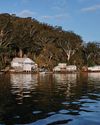
SECLUDED, BUT NOT ALONE
In an era of heightened social isolation, where many of us lead lonely lives, Dangar Island offers the chance to be part of a supportive, connected community.